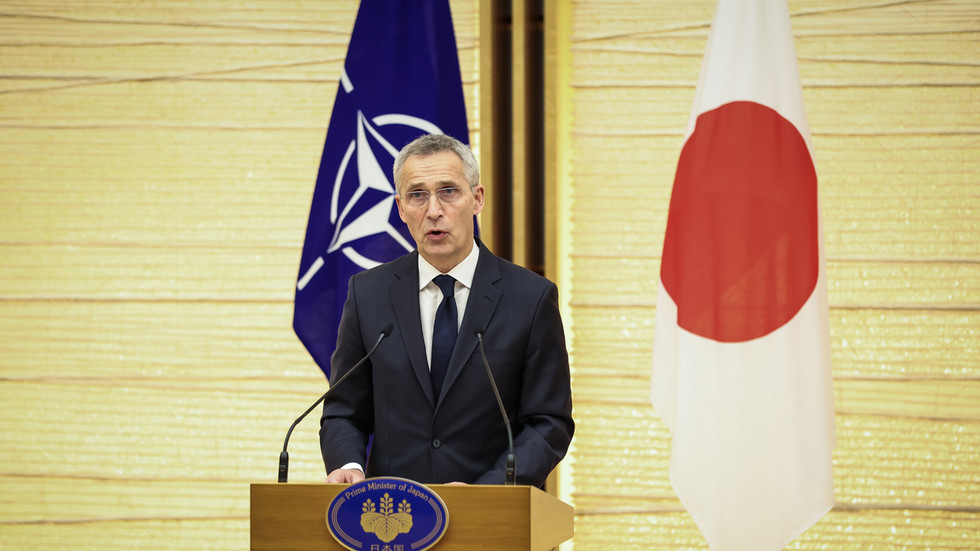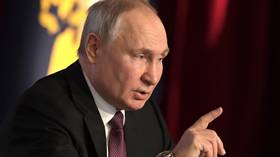
The US-led military bloc wants to deepen Asia-Pacific cooperation, according to Nikkei Asia

NATO Secretary-General Jens Stoltenberg speaks during a joint media briefing with Japan’s Prime Minister Fumio Kishida on January 31, 2023 in Tokyo, Japan. © Getty Images / Takashi Aoyama
Japan and NATO are reportedly seeking to increase collaboration in cyberspace and the US-led military alliance plans to open its first liaison office in Tokyo, Nikkei Asia reported on Wednesday.
According to the outlet, which cited both Japanese and NATO officials, the one-person station would allow the alliance to conduct periodic consultations with Japan and other partners in the region, such as Australia, New Zealand and South Korea.
Nikkei reported that the proposal to open a liaison office is still being negotiated after it was first raised between Japanese Prime Minister Fumio Kishida and NATO Secretary General Jens Stoltenberg during the latter’s visit to Tokyo earlier this year.
It’s unclear how the office space would be organized. The outlet notes that similar NATO stations are usually provided by the host nation, and that if Tokyo ends up funding a Western military alliance foothold in Japan, it would mark a new phase in defense cooperation for the country.
Tokyo also reportedly plans to sign an Individually Tailored Partnership Program with the alliance before the NATO summit in Lithuania in July. Japan and NATO are supposedly looking to deepen collaboration in tackling cyber threats, coordinate stances on emerging and disruptive technologies, and exchange notes on fighting disinformation, Nikkei reported.

Read more
The news comes as NATO has openly outlined its plans to increase cooperation with its partners in the Indo-Pacific region. In its 2022 Strategic Concept, the bloc explained the need to create new alliances by pointing to “systemic challenges” to Euro-Atlantic security posed by China and Russia, with Moscow described as the “most significant and direct threat” to NATO.
The bloc’s attempts to spread its influence into Asia has already attracted criticism from both Moscow and Beijing. In March, Russian President Vladimir Putin blasted the push to create a “global NATO” and said it resembled the actions of Nazi Germany, Italy and Japan in the 1930s.
China, meanwhile, has also denounced NATO’s Strategic Concept, claiming it was filled with distorted facts and tainted with a Cold War mentality that smears Beijing’s foreign policy.




